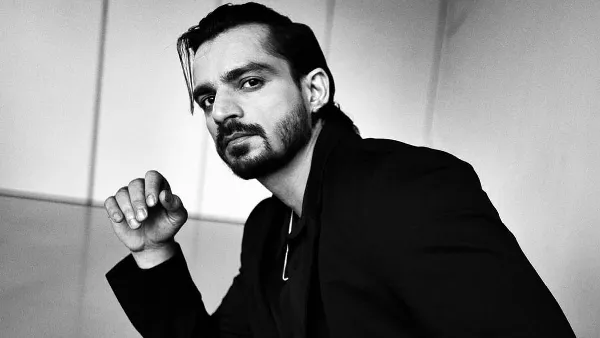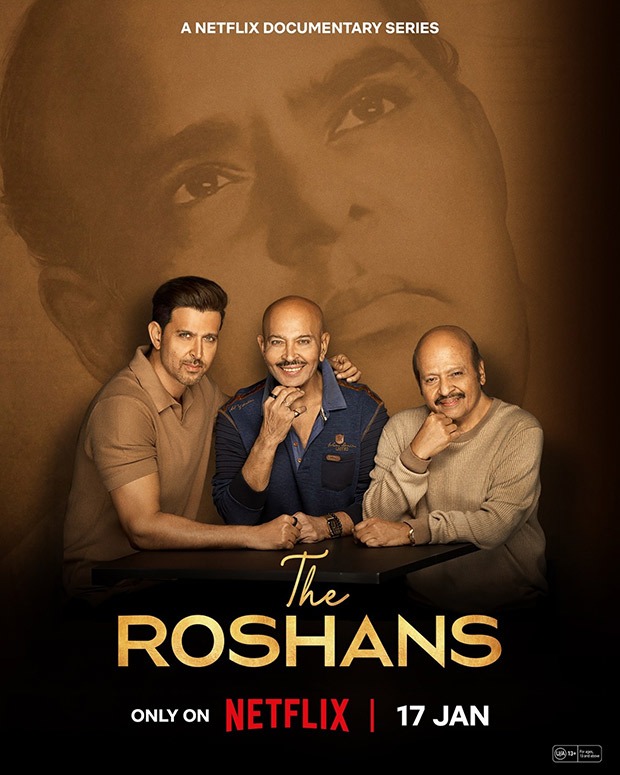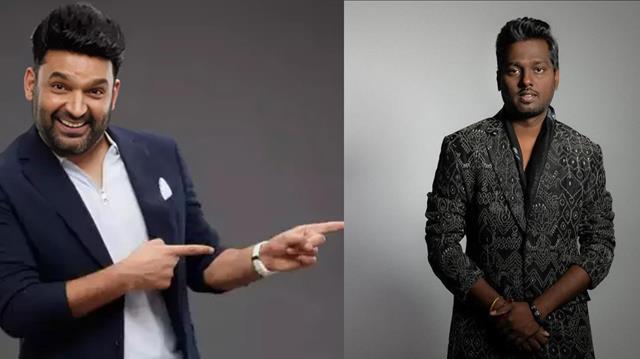After a Mumbai-based serial killer sent shivers down the spines of corrupt film critics (in R Balki’s Chup: Revenge of the Artist), a new journo slayer is on the loose, haunting tainted scribes. However, unlike Danny (Dulquer Salmaan) in Chup, the new serial killer is far more notorious and primarily targets those near and dear to the corrupt ones, instead of attacking the journos directly.
Wow. This definitely is not a good time to be a journalist, huh? Well, it isn’t; but not just because films and shows want manipulative journos killed in cold blood, for sure.
Vikram Kumar’s Amazon Prime Video series Dhootha (The Messenger) revolves around Sagar Varma Avuduri (Naga Chaitanya), a reputed young journalist who has recently assumed the role of chief editor for the soon-to-be-launched newspaper, Samachar. Tainted to the core, Sagar views journalism merely as a business tool and is willing to go to any lengths to accumulate wealth, whether it involves spreading disinformation or writing articles at the behest of his sponsors.
However, his life takes a turn one night when a tragic accident claims the life of his pet dog. What adds an eerie element to this incident is that Sagar had received advance notice of the incident through a newspaper cutting found in a public place just before it occurred. Subsequently, a series of unfortunate incidents unfold in his life, all of which he had been forewarned about through newspaper clippings he discovered at random places. Despite this awareness, he finds himself powerless during those moments and witnesses the gradual loss of his dear ones.
Meanwhile, Sagar’s former friend and colleague Charles (Srikant Murali) experiences similar life-altering events, culminating in him taking his own life. DCP Kranthi Shenoy (Parvathy Thiruvothu) initiates an investigation into Charles’ death and uncovers indirect connections between Sagar and the suicide. As the series unfolds, Sagar confronts escalating tragedies and makes a series of regrettable moves, prompting Kranthi to shift her focus onto him. The remainder of the show delves into the unfolding events in Sagar’s life, the mysterious newspaper cuttings and Kranthi’s efforts to unravel the truth behind everything.
A suspense thriller with supernatural elements, Dhootha employs a parallel narrative, with one thread focusing on the events unfolding in Sagar’s life and the other on Kranthi’s investigation. These storylines are intertwined but rarely directly intersect. While Sagar’s narrative is more dynamic, featuring incidents fuelled by supernatural forces, Kranthi’s storyline unfolds at a natural pace.
From the outset, Dhootha exudes a manufactured feel and as it progresses, this sensation becomes even more apparent. The show delves into the traditional good journalist vs bad journalist debate, emphasising that the only pitfall to watch out for is greed. It seldom addresses or explores the numerous other issues that journalists face. Even if we set aside this aspect as a creative choice, the portrayal of good and bad journalists aligns with popular perceptions and that too stops Dhootha from becoming truly original. It suggests that good journalists will be (or need to be) in perpetual struggle, teetering on the brink of poverty, yet finding satisfaction in upholding their values. Wonder when this romanticisation of poverty will end.
On the other hand, Dhootha also falters by relying excessively on supernatural elements. While it’s understandable that a specific paranormal force is responsible for the newspaper cuttings, the way the makers depict how Sagar comes across these cuttings is quite weak, as they heavily rely on manufactured moments, passing them off as being orchestrated by the supernatural force. For instance, in one scene, Sagar is near a glass window in his office and a coworker’s child discovers a newspaper cutting in a dustbin, turns it into a paper plane, and, coincidentally, it lands near Sagar with the exact message he needs. Mind blown! It’s moments like these that lack creativity and become noticeable. The show’s reliance on the supernatural is so overwhelming that practically everything this force plans unfolds without any other peson’s random decisions standing a chance. Unfortunately, the entire portion featuring the presence of the force is marred by a lack of creativity and thoughtful execution.
Simultaneously, the dramatic aspects of Dhootha are not particularly impressive either. The show covers a range of clichés, from extramarital affairs, accidental pregnancies and make-out sessions under bedsheets to the politician-journalist nexus, corruption and an excessive focus on the “right ways” to lead life. Essentially, Dhootha seems to capitalise on every common plot element that similar shows often resort to, and this convenience diminishes its overall impact.
It nevertheless shines in the investigative storyline, adeptly focusing on each and every aspect, progressing at a gradual pace while keeping viewers on the edge of their seats. From the moment that Kranthi takes on the case, the investigation unfolds in a realistic manner, portraying her without superhuman abilities as she navigates through challenges. She encounters obstacles, makes mistakes during the probe and even overlooks certain details despite her sharp investigative skills, rendering the entire storyline more digestible.
Despite being in the spotlight almost the whole time, Naga Chaitanya falls short of delivering a captivating performance. While he genuinely tries in various moments, none of them particularly stands out and he struggles to convey the myriad of emotions Sagar is experiencing after encountering numerous unexplainable life events. On the other hand, Priya Bhavani Shankar, in the role of Sagar’s wife, excels, particularly towards the end. Although Prachi Desai’s performance is decent, her character becomes underutilised after a certain point, as writer-director Vikram Kumar struggles to maintain a proper balance between the multiple plotlines. Tharun Bhascker, Jayaprakash and Pasupathy also deliver commendable performances.
However, amidst a pool of talents, it is Parvathy Thiruvothu who truly shines with her exceptional performance, never attempting to overshadow the series. With utmost focus on her character’s nuances and a deliberate choice to not overtly express everything going on inside her character’s head —reflecting the traits of a sharp cop — Parvathy dominates every scene she graces. Entering the show with her hands clasped behind her back, reminiscent of the legendary Malayalam character Sethurama Iyer CBI, she aces every moment, without a single slip. Reflecting on the show raises questions about why the makers didn’t give more prominence to her character and that storyline. Hence, a spinoff or a sequel based on her character would indeed be welcomed.
While creator-director Vikram Kumar demonstrates excellent command over the show, particularly in depicting 1960s events when it all started, and the investigation storyline, the lack of uniqueness in Sagar’s portion detracts from the overall impact of his efforts. Despite many visually impressive scenes in Dhootha, thanks to cinematographer Mikolaj Sygula, its colour grading is somewhat vexing as the overt and unnecessary use of a blue tint and sepia in a conventional manner seems to overemphasise what is already evident from the story and dialogues. Although the recurring presence of rain adds charm to the series, the frequent use of slow-motion raindrops as fillers has impacted the show’s rhythm. While Rajeevan’s production design is praiseworthy, Ishaan Chhabra’s music is truly stunning.
In short, Dhootha is a case where an interesting plot is marred by the makers’ inability to fully tap into its true potential, resulting in its downfall.




